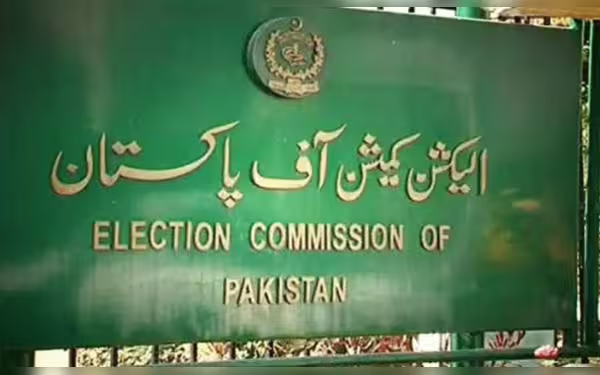Saturday, November 16, 2024 03:18 PM
Supreme Court Orders Immediate Execution of Reserved Seats Verdict
- Supreme Court rebukes ECP's clarification request.
- PTI eligible for reserved seats in assemblies.
- Ruling challenges stability of current government.
 Image Credits: dawn.com
Image Credits: dawn.comSupreme Court orders immediate execution of reserved seats verdict, impacting PTI's eligibility and government stability.
The political landscape in Pakistan has taken a significant turn following a recent ruling by the Supreme Court regarding reserved seats in the national and provincial assemblies. This ruling, which was delivered by a 13-judge full bench on July 12, 2023, has declared that the Pakistan Tehreek-e-Insaf (PTI) party is eligible to receive reserved seats for women and non-Muslims. This decision has not only reshaped the dynamics within the assemblies but has also posed a considerable challenge to the ruling coalition led by Prime Minister Shehbaz Sharif.
On Saturday, the Supreme Court responded to a request from the Election Commission of Pakistan (ECP) that sought clarification on the court's earlier verdict. The court described this request as “misconceived” and emphasized the need for immediate implementation of its original directions. This strong rebuke indicates the court's firm stance on the matter, leaving little room for further delay or misinterpretation.
The implications of this ruling are profound. With the PTI potentially becoming the single largest party in both houses of Parliament, the balance of power could shift dramatically. This situation raises questions about the future of the current government and its ability to maintain stability in the face of such challenges. The ruling coalition, which has already faced criticism and opposition, now finds itself in a precarious position as it navigates the aftermath of this landmark decision.
As the political drama unfolds, it is essential for citizens to stay informed about these developments. The Supreme Court's ruling not only affects the political parties involved but also has broader implications for democracy and representation in Pakistan. The reserved seats are crucial for ensuring that women and non-Muslims have a voice in the legislative process, and the court's decision reinforces the importance of inclusivity in governance.
The Supreme Court's directive for immediate execution of its verdict on reserved seats is a pivotal moment in Pakistan's political history. It serves as a reminder of the judiciary's role in upholding democratic principles and ensuring fair representation. As the situation evolves, it will be interesting to see how the political parties respond and what this means for the future of governance in Pakistan.













